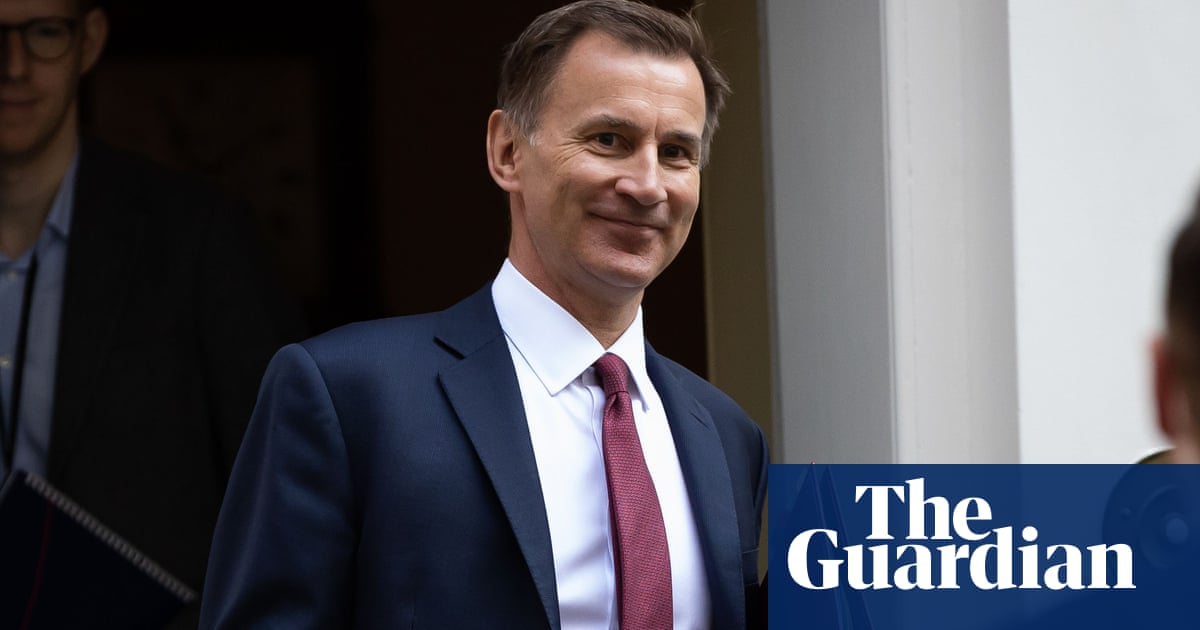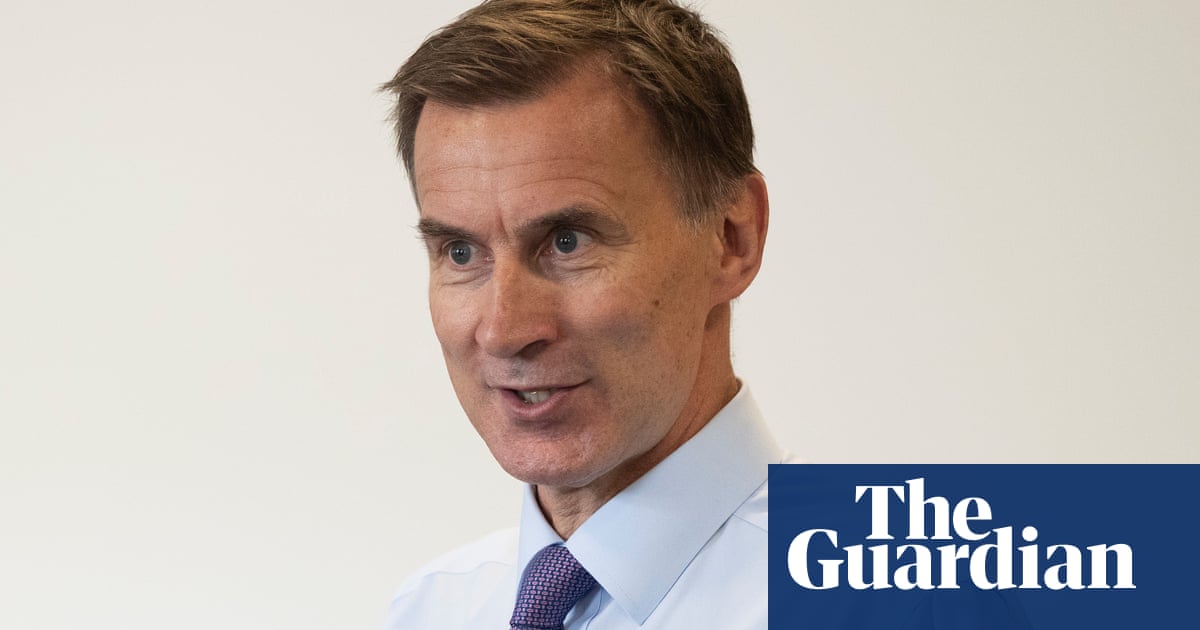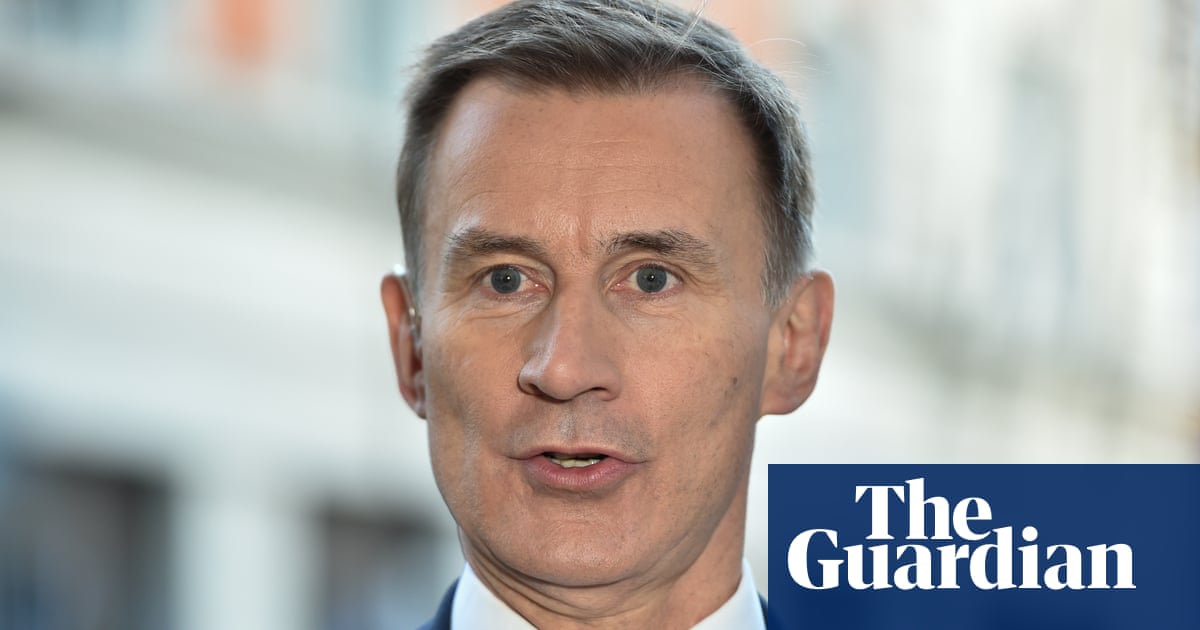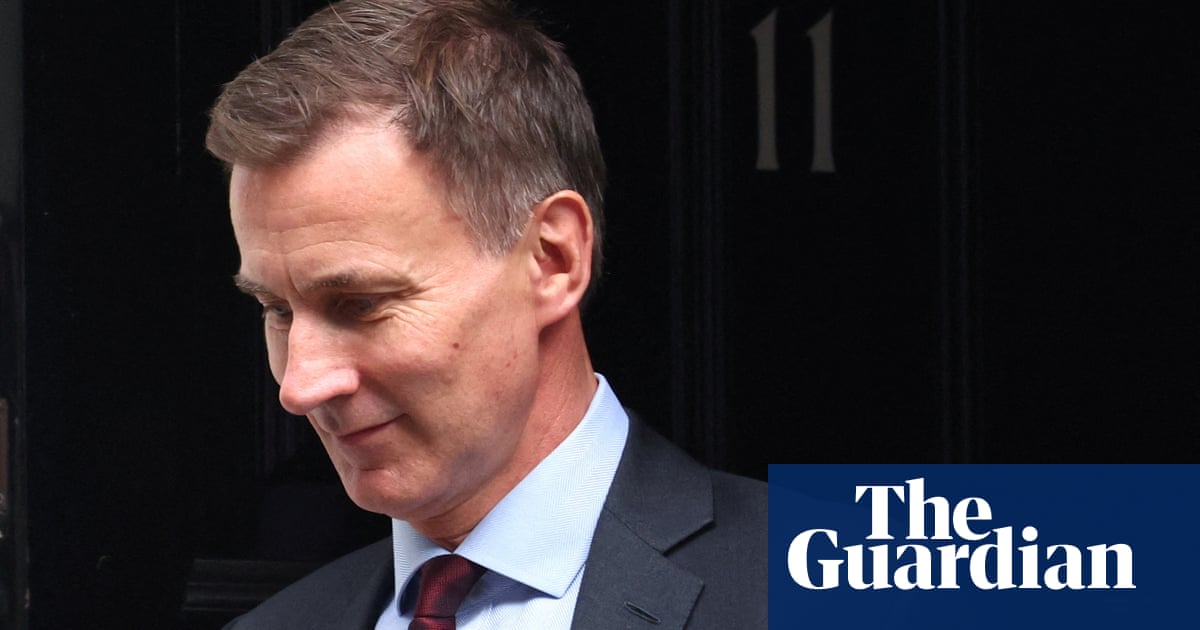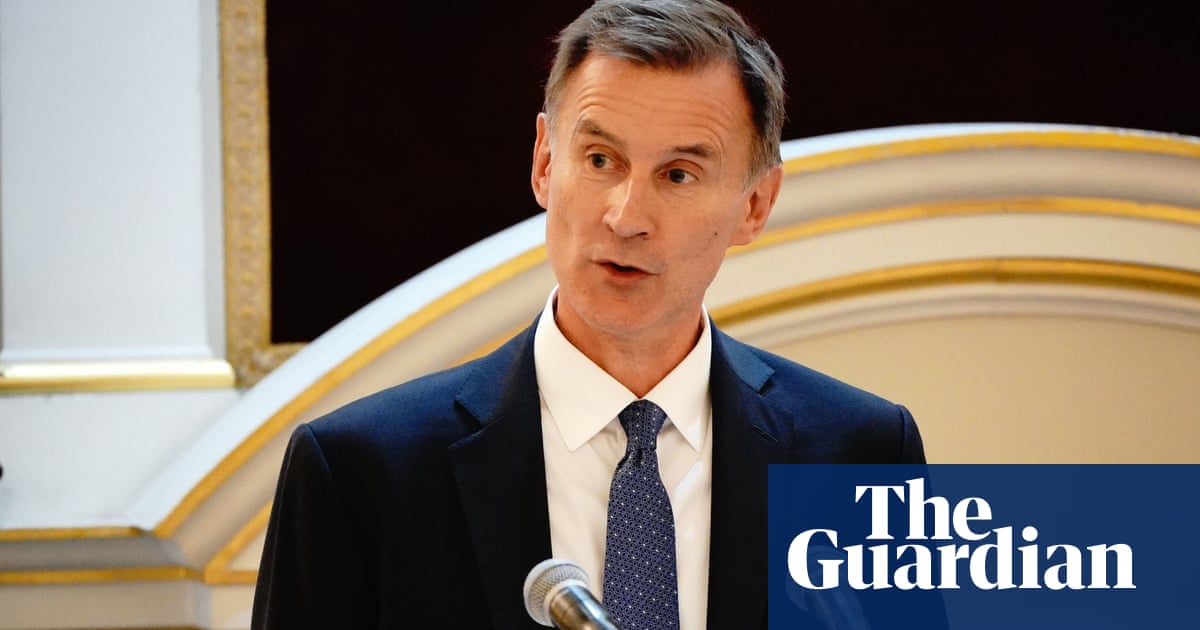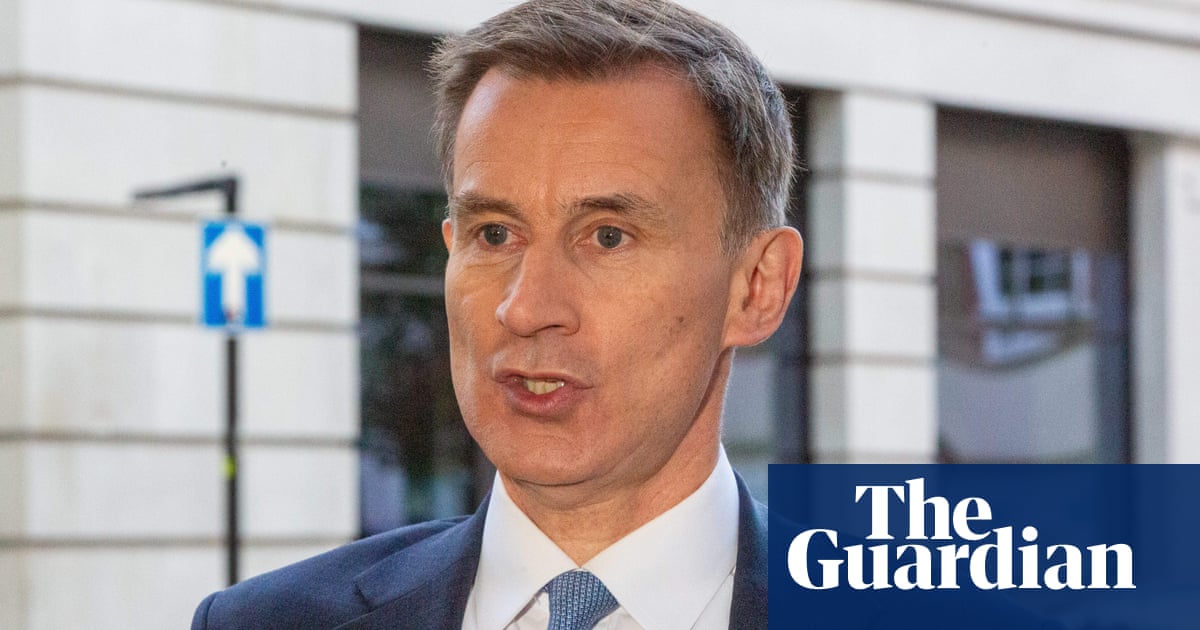
Jeremy Hunt has hinted that Conservative MPs pressing for immediate income tax cuts could be disappointed, as he insisted he would not take any measures in this week’s autumn statement to fuel inflation.
In what is likely to cause unease among MPs pressing for a move to shore up the party’s core vote, the chancellor said in a series of interviews that tax cuts were “not going to happen overnight”.
“The one thing we won’t do is any kind of tax cut that fuels inflation. We’ve done all this hard work. We’re not going to throw that away,” Hunt told Sky News’ Sunday Morning with Trevor Phillips programme.
However, Hunt left the door open to cutting income taxes and the prospect of a cut this week to inheritance tax, saying: “Everything is on the table in an autumn statement.”
Hunt’s fellow cabinet minister Michael Gove made an explicit call last month for an income tax cut before the next general election. But there have been warnings that an inheritance tax cut could prompt a backlash from “red wall” Tory MPs.
One of those, Jonathan Gullis, a former minister and the MP for Stoke-on-Trent North, said: “While long term this [inheritance tax] should be eventually abolished, now is not the right time for this tax cut. Instead, we should be looking at cutting the basic rate of income tax [and] increasing the 40p tax threshold to help families really feeling the pinch.”
In another area, Hunt expanded on a warning last week that welfare claimants who refuse to engage with their jobcentre or take work offered may lose benefits.
“We think it’s fair to say that if you are not engaging with this process at all, if you don’t engage for six months, we are going to close your case and stop your benefits. I think taxpayers would expect nothing less,” he said.
He made it clear that he saw the dividing line between his party and Labour as they headed into an election as the value placed by the Tories on tackling a tax burden that they saw as too high.
Rachel Reeves, his Labour shadow, said cutting inheritance tax during a cost of living crisis would be wrong. She also warned against the gradual erosion of people’s incomes if the chancellor went ahead and squeezed billions from benefits payments, as has been under consideration.
Ministers typically use the September figure for inflation when uprating working-age benefits, which would mean a 6.7% hike, but the chancellor has not ruled out using this October’s figure of 4.6%, which economists say would cut spending by about £3bn. The moves would largely affect working-age households receiving disability or means-tested benefits, according to the Institute for Fiscal Studies (IFS).
Reeves told the BBC on Sunday that Labour would raise benefits in line with September inflation figures if elected, adding: “If you pick and choose from year to year which inflation number is the cheapest thing to do, then what you see is the gradual erosion of people’s incomes.”
The IFS director, Paul Johnson, said any cut to inheritance tax would be “a very odd statement of priorities”.
On benefits, he said while he understood what the chancellor was saying on one level, “we do have possibly the meanest welfare system in Europe in terms of how it treats those who are unemployed”.
He said: “The level of unemployment benefit has not risen in real terms for more than 50 years whilst the level of earnings has gone up two and half, three times, so the level of benefits is way below where it use to be relative to earnings.”




